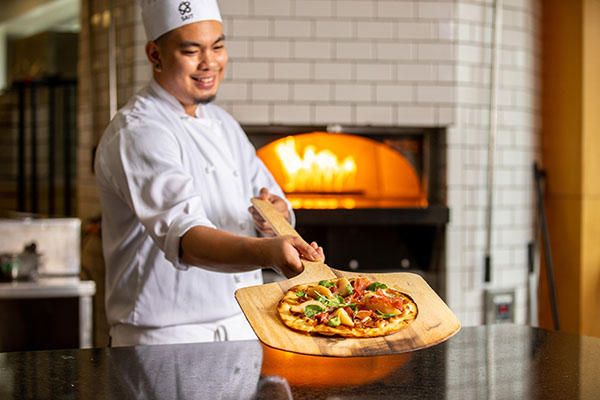Cooking has long been viewed as both an art form and a science. The culinary arts combine creativity, technique, and precision to create delicious and visually appealing dishes. For aspiring chefs and food enthusiasts, pursuing a culinary arts course can unlock a world of opportunities, equipping them with the skills and knowledge required to thrive in the dynamic food industry.
Why Culinary Arts Matter in Today’s World
Culinary arts go beyond simply preparing meals. They are about creating experiences, understanding the science of flavors, mastering techniques, and using creativity to innovate. In today’s food-centric culture, the demand for skilled chefs and culinary professionals has skyrocketed, driven by the rise of global cuisines, gourmet restaurants, and food tourism.
Innovation and Creativity:
Culinary arts encourage creativity, allowing chefs to experiment with flavors, textures, and presentations. Whether it’s reinventing traditional dishes or creating new ones, the field is rich with opportunities for innovation.
Global Influence:
The rise of global food cultures has made culinary arts a dynamic and evolving field. With increasing demand for international cuisine, chefs are sought after not just locally, but globally, creating new opportunities for travel and cross-cultural exchange.
Career Opportunities:
The food and hospitality industry is one of the fastest-growing sectors, offering a wide range of career options, from working in world-class restaurants and hotels to owning a food business or becoming a food consultant.
What Culinary Arts Courses Offer
Culinary arts courses provide a blend of practical hands-on training and theoretical knowledge, ensuring that students are not only prepared to create exquisite meals but also understand the business and management aspects of the food industry. Here’s what culinary arts courses typically offer:
1. Comprehensive Culinary Training
Culinary arts courses are designed to provide students with a solid foundation in cooking techniques. These include essential skills like knife handling, baking, grilling, sautéing, roasting, and various preparation techniques. Students gain hands-on experience in preparing both traditional and contemporary cuisines.
- Basic Techniques: Knife skills, food safety, sanitation, and essential cooking techniques.
- Advanced Techniques: Sous-vide cooking, molecular gastronomy, plating, and advanced food presentation.
2. Theoretical Knowledge
Beyond just cooking, culinary arts courses cover the theory behind cooking—understanding flavors, food science, and nutrition. This knowledge helps chefs make informed decisions about ingredients, recipes, and techniques.
- Food Science and Nutrition: Students learn about the science behind food ingredients, flavor pairings, and the chemical reactions that take place during cooking.
- Food Safety and Hygiene: Culinary arts courses emphasize proper food handling practices and compliance with health and safety regulations.
3. Specialized Training in Global Cuisines
Culinary arts courses often offer specialized training in various global cuisines such as Italian, French, Asian, Mediterranean, and more. This allows students to explore diverse culinary traditions and techniques, enhancing their skill set and making them adaptable to different types of kitchens.
- Regional and International Cuisines: Courses often include modules on regional specialties, such as French sauces, Italian pasta, Indian spices, and Asian stir-frying techniques.
- Fusion Cooking: Students are taught how to combine different culinary traditions to create innovative dishes that appeal to modern food trends.

4. Practical Exposure through Internships
Many culinary arts courses integrate internships or hands-on industry experience as part of the curriculum. This allows students to apply what they’ve learned in real-world settings, such as top restaurants, hotels, catering services, or food production facilities.
- On-the-Job Training: Internships provide exposure to professional kitchen environments, allowing students to build confidence and refine their skills.
- Networking Opportunities: Internships often lead to industry connections, mentorship, and career advancement.
5. Business and Management Skills
Culinary arts courses also offer a strong foundation in business and management skills, which are crucial for those looking to enter the food industry as entrepreneurs or managers.
- Restaurant Management: Courses cover topics like menu planning, kitchen management, budgeting, and business operations.
- Food Safety and Regulations: Understanding food safety, health codes, and regulatory standards is essential for running a successful food business.
- Marketing and Entrepreneurship: For those aiming to start their own food ventures, courses often cover marketing strategies, branding, and business development.
6. Creative Culinary Arts
Culinary arts courses emphasize the creative side of cooking, helping students develop a personal style and aesthetic. Courses in food presentation, plating, and food styling ensure students are equipped to create visually appealing and innovative dishes.
A career in culinary arts offers a perfect blend of creativity, technique, and business acumen. Pursuing a culinary arts course not only enhances your cooking skills but also opens doors to exciting career opportunities in the growing food and hospitality industry. By enrolling in reputed culinary arts colleges in India, aspiring chefs can receive the training, knowledge, and exposure needed to succeed in this dynamic field.












